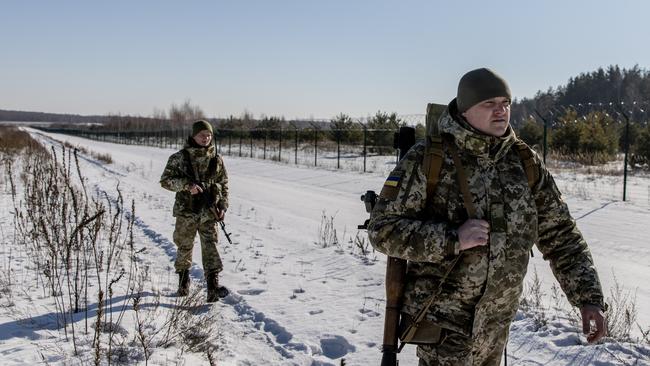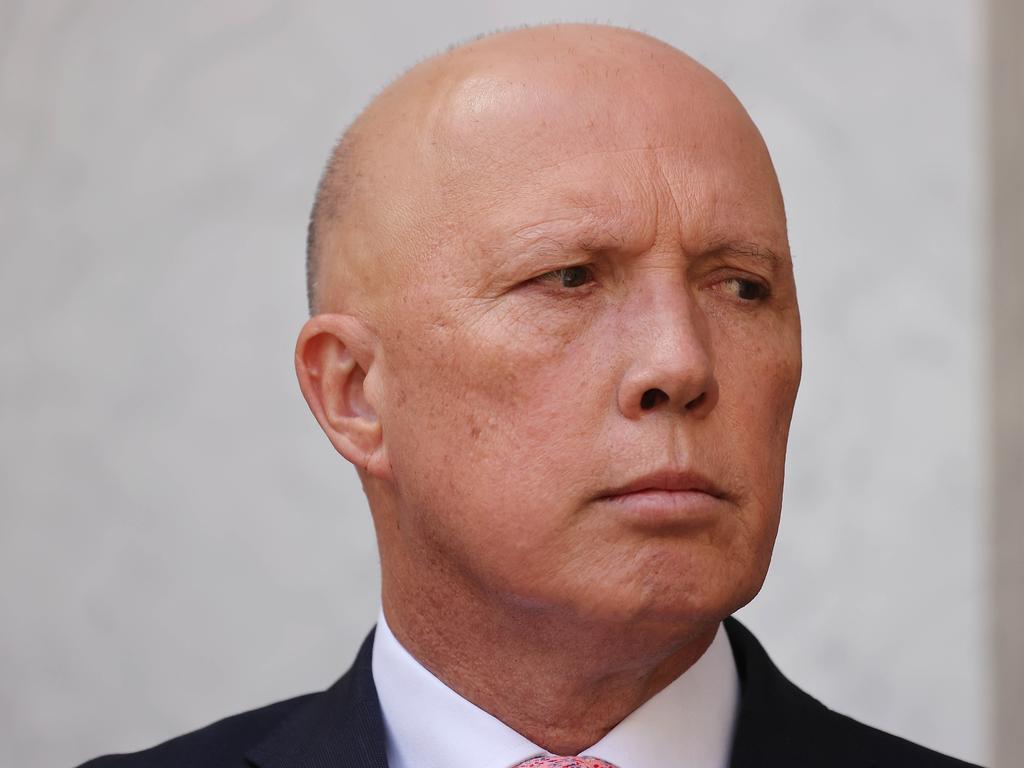
Perhaps that explains the comparative gritty realism of our forebears. Since the fall of the Berlin Wall three decades ago, major war, at least in countries such as ours, has become almost unthinkable on the basis that just about everyone has come around to our view that hardly anything is worth dying for, at least in the comfortable West. But just because war is unthinkable to us doesn’t mean it can’t happen, especially when powerful leaders believe it may be the only way to realise the destiny of their nations.
Vladimir Putin believes the collapse of the old Soviet empire was the “greatest geopolitical catastrophe” of the past century. To restore Russia to its former glory, so far he has invaded Crimea, effectively annexed the Donbas, defeated Georgia and killed sundry critics. More than half of Russia’s army and air force and much of its navy are mobilised on the borders of Ukraine, a former Soviet republic that would like to join the EU and NATO.
Maybe he’s bluffing in an attempt to intimidate the Ukrainians into making concessions or to precipitate a political crisis that might produce a pro-Russian government in Kiev. Or maybe he has decided political weakness in Washington and London, and division between the Atlantic and the European allies, has opened a window of opportunity to win a one-sided war. What’s clear, regardless of whether an invasion is about to materialise, is Putin won’t stop his aggression against Ukraine until it’s subservient to Russia once more.
Likewise, China’s Xi Jinping is determined to have revenge for what he sees as the “century of humiliation” and repeatedly has declared that being incorporated into China is Taiwan’s inevitable destiny. With Sun Tzu, Xi doubtless would prefer to take Taiwan without a fight. But having already militarised the South China Sea, enslaved a million-plus Uighurs, crushed the liberal institutions of Hong Kong and engaged in border skirmishes with India, Xi clearly is ready to take risks to secure the Communist Party’s objectives. Not for nothing has China built what is the world’s largest navy and created for itself on-paper military superiority over the US in the western Pacific.
After years of downplaying China’s rhetoric about becoming the world’s dominant power by mid-century, the US finally has chosen to take China at its word with Secretary of State Antony Blinken’s declaration in Melbourne last week that China is bent on world domination.
Scarcely 10 days ago, at the start of the Winter Olympics, the new tsar from Moscow and the new emperor in Beijing sealed their unity with a joint statement on “international relations entering a new era”. They vowed that friendship between their two states had “no limits”; and in endorsing each other’s territorial claims against Ukraine and Taiwan they declared there were “no forbidden areas of co-operation”.
Given these two dictatorships are on the march, the question for every other country is: whose side are you on and what are you prepared to do? Confronted with Islamism in Afghanistan and Iraq, the US and its allies were prepared to take a stand. But tired of “forever wars” and having scuttled ignominiously from Kabul, the US may have lost the will to act as policeman and guarantor of the liberal order that has made the world safer, more prosperous and freer than at any other time.
Despite their 1994 guarantee of Ukraine’s territorial integrity in return for its surrender of Soviet-era nuclear weapons, all Britain and the US have done is supply modest quantities of antitank and anti-aircraft missiles. Germany has hesitated to promise sanctions should Russia invade because it relies on Russia for 50 per cent of its gas. In echoes of the 1938 sellout of Czechoslovakia, France has tried to pressure Ukraine into amending its constitution to meet Putin’s demands.
When Britain was about to go to war in 1914, our Labor leader Andrew Fisher declared “should the worst happen … Australians will stand beside the mother country to help and defend her to our last man and our last shilling”.
Chastened by that experience, when Britain again went to war in 1939, prime minister Robert Menzies declared it was his “melancholy duty to inform you … that in consequence of the persistence of Germany in her invasion of Poland, Great Britain has declared war upon her and that, as a result, Australia is also at war”.
Today, notwithstanding our ANZUS Treaty obligation to “act to meet the common danger” if the Americans are involved, Australians’ instinctive response to any war in eastern Europe or even in East Asia would initially echo Neville Chamberlain over the Sudetenland. Why join someone else’s fight, a “quarrel in a faraway country between people of whom we know nothing”?
For almost 50 years after 1945, the peace of Europe depended on the willingness of the US to fight for other countries under the collective self-defence provisions of article five of the NATO charter.
For now Russia’s target is Ukraine rather than the naturally more vulnerable Baltic States because they’re in NATO and Ukraine is not. For now, despite deliberate US strategic ambiguity, America’s commitment under the Taiwan Relations Act is enough to deter an invasion. US aversion to the fights Russia and China are spoiling for is understandable. But declining to fight doesn’t necessarily stop losing a war. At the least, a successful Russian invasion of Ukraine would produce a new iron curtain in Europe and economic disruption as world energy prices spiked. An unopposed Chinese takeover of Taiwan would be far worse, with the collapse of the US-led liberal order that has enabled the best of times.
The Morrison government understands collective security provides the only effective protection for small countries against big ones. That’s why it has boosted defence spending, helped to revitalise the Quadrilateral Security Dialogue, developed a military partnership with Japan, and entered the AUKUS security pact to get nuclear-powered submarines.
Plainly the government thinks stressing its security credentials is its best chance of re-election. That’s not to be condemned when it should be a front-of-mind consideration for voters. Sadly, though, there’s a sense that too many of us are still discombobulated by Covid and not ready (or willing) to focus on other threats.
That’s a mistake, and it’s a mistake democracies have made throughout history. With Covid and the fact most world leaders still think climate change is a bigger challenge than Russia and China, you’ve got to worry about what the future will hold.
Peta Credlin is the host of Credlin on Sky News, 6pm weeknights.








Those born around the time of Federation had to deal with two world wars, the Depression and the Spanish flu pandemic in their lifetimes. By contrast, for most Australians alive today the Covid-19 pandemic has been our toughest collective challenge.